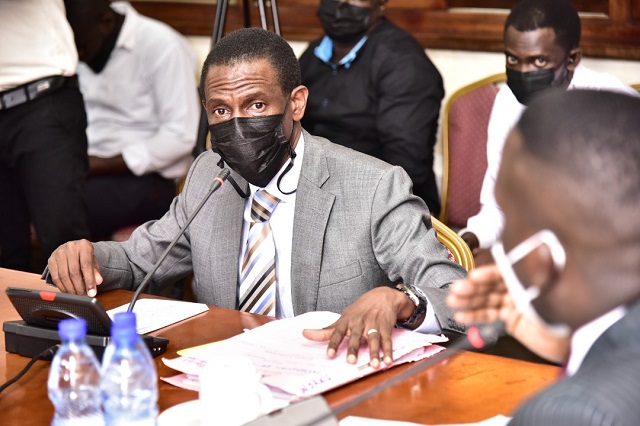
Kampala, Uganda | THE INDEPENDENT | The Attorney General Kiryowa Kiwanuka has asked the constitutional court to dismiss an application challenging the president’s decision to appoint 16 High Court Judges in acting capacity.
On May 25th, 2022, the Judicial Service Commission issued a press statement indicating that President, Yoweri Kaguta Museveni had appointed 16 High Court judges to serve in an Acting Capacity for two years in a bid to strengthen the staffing gaps in the Judiciary as well as to reduce the case backlog in the justice system.
Those appointed include Mary Ikit, Douglas Singiza Karekona, Susan Kanyange, Samuel Emokor and Flavia Matovu Nassuna, Patricia Kahingi Asiimwe, Bernard Namanya and Thomas Ocaya Ojele Rubanga. Others are Grace Harriet Magala, Collins Acellam and Allan Paul Nshimye Mbabazi, Patricia Mutesi, Christine Kaahwa, George Okello, Celia Nagawa, and Faridah Shamilah Bukirwa.
Section 19 of the Judicial Service Commission Rules of 2005 indicates that the commission may advise the appointing authority on the nature of appointments to be made such as substantive, acting, contract, temporary, or probation in respect of judges, registrars, and other judicial officers.
According to the rules, a probationary appointment shall be for a period of two years and any extension of a probationary appointment shall not exceed one year. However, on June 8th, 2022, Makerere University Law Don, Dr. Kabumba Busingye, and lawyer Andrew Karamagi petitioned the Constitutional Court to declare the appointments illegal.
They argued that the appointments in acting capacity violate several constitutional provisions, which refer to the Supremacy of the Constitution and the Independence of the Judiciary. The petitioners also argued that such conditional appointments infringe on the Supremacy of the Constitution, undermine the security of tenure of Judges, and violate the independence of the Judiciary as the said officers are likely to execute their duties with either fear of retribution or expectation of favor or both from the appointing authority.
However, in his defense backed by an affidavit sworn by Julius Mwebembezi the Registrar of Judicial Service Commission -JSC, the attorney general wants the case dismissed on grounds that it’s premature, lacks any merit, and does not raise any questions for Constitutional interpretation.
Mwebembezi says the Constitution gives authority to the President acting on the advice of the JSC and approval by Parliament to appoint Judges in an Acting Capacity.”..the commission has the mandate to advise the President to appoint persons to hold or act in any office including for the position of the Judge of High Court and to propose a period for such officer to act”, reads Mwebembezi ‘s affidavit.
Mwebembezi argues that Acting Judges are full members of the Judiciary for the duration of the tenure of their appointment and that their tenure is subject to the administration and supervision by the Chief Justice assisted by the Principal Judge, not the appointing authority as the petitioners allege.
“By virtue of their appointment to a public office, judicial officers are accountable to the people and hold office in trust for the people of Uganda, and are not under the control of the appointing authority,” adds Mwebembezi ‘s affidavit seen by Uganda Radio Network.
According to Mwebembezi, the terms of service for the Acting Judges are not different from those of substantive judicial officers as provided for under the constitution. But Dr. Kabumba maintains his stand, saying that the appointments are illegal adding that when a Judge is appointed in an Acting Capacity, they essentially serve at the mercy of the judicial service commission and the president on whom they depend for reappointment or confirmation.
“While such Acting Judges are members of the Judiciary, that only subsists for the period of their stipulated acting capacity, with absolutely no guarantee of their subsequent reappointment or confirmation. In effect, they do not enjoy the same security of tenure as enjoyed by permanently appointed judicial officers”, says Kabumba. The Constitutional Court has not yet fixed a date for hearing the petition.
****
URN
 The Independent Uganda: You get the Truth we Pay the Price
The Independent Uganda: You get the Truth we Pay the Price



